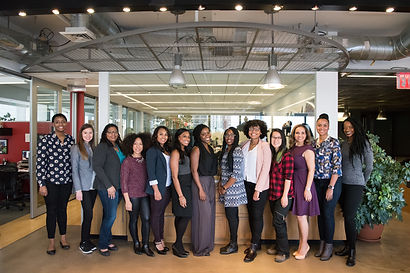
Wake Forest University
Wake Forest University has a number of hands-on opportunities provided by their Office of Personal and Career Development. Along with their courses in personal development, they also offer Career Treks, in which students can different cities and companies across the country. Some of the past Career Treks have included tech companies in Silicon Valley, marketing and public relations firms in New York, and jobs in politics in Washington, D.C.
Recommendations for College-to-Career series
(Theory: Marcia's Ego Identity Statuses, epistemological development)
I think that the courses in personal development give students the opportunity to really explore if the career path they thought they wanted to go down is really their best fit. This is an excellent series, and I think it could be used even more intentionally to facilitate student development.
Recommendations
-
Have professors/advisors in the major field teaching or otherwise involved in introductory personal development courses
-
Encourage or possibly require self-exploration course for first-year students
A number of student development theories - especially those related to psychosocial identity development and epistemological development - allude to the fact that there is a period of time where students are transitioning from relying on authority figures to relying on their own judgements, and going from expectations of others to know what one wants as it relates to career is a critical transition in college.
The introductory personal development course - Personal Framework for Career Exploration - gives students the foundation to learn about themselves more before diving into exploring career options. In Marcia's theory, through crises - exploration - students turn to many figures in their lives to make decisions. At the start, when students are still in the foreclosure status, these will often be "authority figures" - parents, family members, professors and academic staff.
This course is currently recommended to second semester students, and encouraged for second year students, but knowing that starting to understand one's self is critical to development, a course like this should be a part of a first semester student's curriculum. If professors or advisors in the student's chosen major - "authority figures," in this case - were able to lead these courses as recommended seminars for student self-discovery, it is possible that students would be able to start down the path to Identity Achievement and security in their decisions even sooner.
Recommendation for Career Treks
(Theory: Kolb's Experiential Learning Cycle)
The Career Treks seems like a fascinating way to get to know a career field and to start networking within the field. It would be interesting to combine the College-to-Career series in some way with the Career Trek program.
Recommendation
-
Provide students the opportunity to plan their Career Trek experience through a pre/corequisite course
Kolb's Experiential Learning Cycle requires that students go through various stages to truly learn a concept. Students could prepare for what might be a completely new experience - networking - through a course following this cycle. Students would watch examples of elevator pitches or videos about best practices in networking (concrete experience), write down some tips that they already do well and some they want to work on (reflective observation), create an elevator pitch based on the organization they plan to visit (abstract conceptualization) and finally, practice their pitches with peers (active experimentation). This practice would ultimately lead to them to the actual Career Trek networking - active experimentation in its own way.